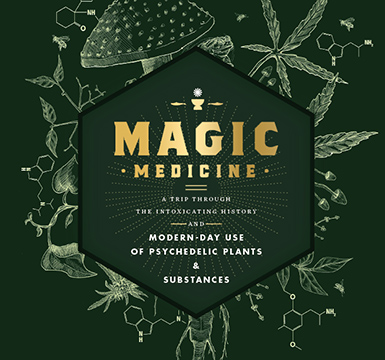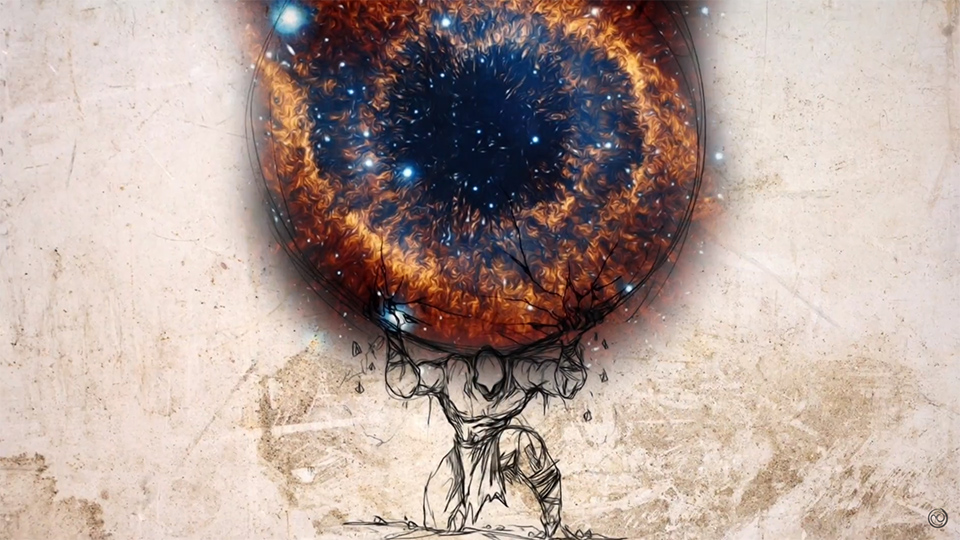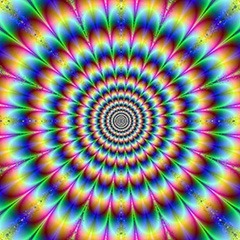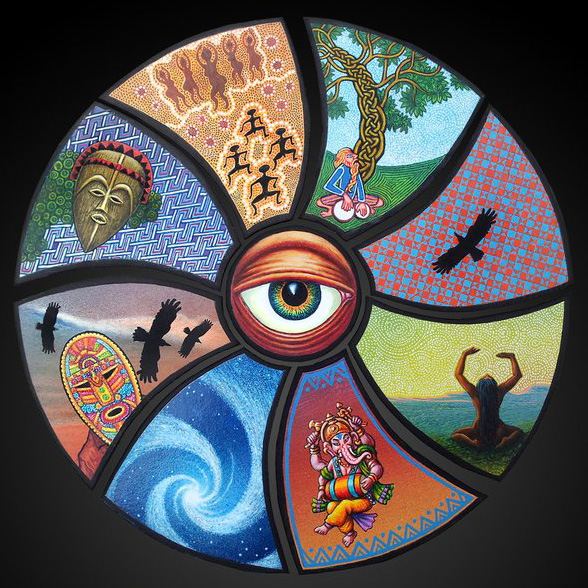 Preconception
Preconception
Psychedelics are not a traditional part of modern Western culture. As psychedelics move toward becoming mainstream, they are being presented using familiar lines of thought. Psychedelic states of mind, which are traditional parts of some cultures, are presented as if the Western World has just discovered them. It’s “Columbus discovers America” all over again.
According to one line of thought, psychedelics distort reality and are perverse. According to another view, they are medicines that can treat disease and restore clear thinking. A Westernization of the indigenous view holds them to be sacraments that can enlighten us. Groups gather as if around street corner prophets because we don’t really have clear definitions for what’s normal, healthy, or spiritual.
Our preconceptions come from our ignorance of these chemicals and the states they induce. Each faction would like to co-opt the experience and use psychedelics to further their interests or impede the interests of another. Everyone wants to know what psychedelics can do for them.
These attitudes reflect more on our prejudice and investments than on psychedelics and the experience. We don’t have an open mind and we can’t see beyond what we know. But then, this is pretty much what we use our minds for in a reason-based, material culture. Everything is interpreted within the context of what we already do. This is the box we put ourselves in.
Alternatives
There are other ways of approaching the world, and there are other cultures with other approaches. Our culture does not teach alternative world views. Conspicuously absent from conservative or liberal attitudes is any attempt to understand cultures other than our own.
Other cultures have other notions of self, family, community, and national identity. These alternatives can be both factually and emotionally different. People learn them by sharing, not by watching.
Preparing for a psychedelic experience is not so much about what you bring with you as it is about what you leave behind.
I lived as the only white person in a small Caribbean village when I was 15, sharing a squeaking spring bed with my friend Percy. As we were squatting alongside the road on one brilliant day, a white-clad mountain of a jet-black woman with a basket on her head exclaimed in approving tones, “Oh Percy! You have a nice white friend!”
We’re taught a system of exclusion, dependence, completion, and institutional values. You bring these values to the psychedelic experience. You encounter these values in everything, and the psychedelic experience amplifies them.
Recognize that to find greater potential in your life, you need to have a view of your world that allows for more. There are other ways of thinking within our own culture which we commonly denigrate, dismiss, or overlook. One of these commonly denigrated views is magical thinking.
Magical Thinking

Matt Carr/Taxi/Getty Images
Magical thinking is the belief that parts of our lives cannot be explained or controlled by rational thought. Magical thinking is ridiculed by institutions who see it as threatening to their future. There are some forms of magical thinking for which this may be true, but, in general, all thinking is magical at its deepest level. It’s just a question of who makes the rules.
Magical thinking is privately embraced by that 80% of the population that believe there exists some transcendent power who or which controls the universe. The separation of church and state is an attempt to allow magical thinking in people’s private lives while enforcing rational thinking in public decisions.
This works well enough as long as there are satisfactory, institutional approaches to our health, community, and ecological problems, but when authorities fail to deliver, we move to consider other points of view. Unless we’re skilled in reason, rhetoric, psychology, or survival we have not learned how to build our own worldview. For most people, where the status quo fails, they turn to magical thinking. In most cases, this amounts to doing what feels right.
Magical thinking ranges from the practical to the transcendent. Practical magic is the belief that magic exists, can be controlled, and is a force like electricity. This is a kind of proto-scientific view that offers to empower you if you subscribe to it. This kind of thinking replaces science but, in most cases, does the same thing. Few of us know how science works either. This magical thinking is a system of reason based on different notions of what’s real.
Transcendent magical thinking is not in conflict with Western cosmology. It’s embodied in all religions. From this perspective, there are forces beyond what we know, that exert or explain things we don’t see, include, or understand. Most people accept this kind of thinking. Like a blinding light, it can be seditious when pointed at ideas we’re expected not to question.
This kind of thinking is trivialized as spectacle and entertainment. This portrayal encourages us to avoid magical thinking making it institutionally non-threatening. Magical thinking is put in a zoo for people to gawk at through tabloid distortion. This, also, is how we’ve been taught to think about psychedelics.
Illumination
The first step to progress in any issue we don’t understand is recognizing that we don’t understand. Rather than looking for solutions, because there won’t be any solutions, the key is reenvisioning the problem. In this, magical thinking can be illuminating because magical thinking is essentially emotional thinking.
“During periods of discontinuous, abrupt change, the essence of adaptation involves a keen sensitivity to what should be abandoned—not what should be changed or introduced. A willingness to depart from the familiar has distinct survival value.”
— Peter F. Drucker, PhD, management consultant
Magic is not a single idea, it’s a host of ideas to which we attach anything that seems impossible. Fairy tales tell of black and white magic, but, much like science, a person’s intent is separate from the understanding of how things work.
Magic is whatever lies outside the possible, whatever comes from who-knows-where. Experiencing magic can be inspired, positive, and creative or depraved, dark, and perverse. Where cosmologies collide to mix powers you don’t understand, proceed with caution.
This does not imply events can be controlled by magic but, rather, that mysterious events are not controlled by us. Until we do understand these things, they will continue to operate according to forces beyond our control. These forces may even be beyond our comprehension, but not necessarily. Few transformations are the result of solutions by normal means. Psychedelics operate by non-normal means.
Promise
Existing attitudes about psychedelics include the pathological model that views their effect as a distortion of reality. The neurotransmitter model explains the experience as a chemical rearrangement. The cognitive behavioral model supposes we can rethink our actions and so change ourselves. And there are other models that see psychedelics as rearranging other aspects of things we already know.
Most of us are ignorant of these models as the illegality of psychedelics has limited our explorations and discussions. Most who advance these models see the psychedelic experience through their own lens. While these views have their benefits, the best understanding will come from an understanding that is deeper, broader, and more personal than these constructions.
Existing attitudes see psychedelics as a tool for solving existing problems, and it is possible that psychedelics may connect us to new solutions in issues of health and science. But science proceeds by exploring many dead ends and, in many cases, psychedelics may be inappropriate for the uses to which they’re put.
The greatest promise of psychedelics lies in the kind of magical thinking that enables you to move beyond what you thought was possible. Any other thinking co-opts their potential and dresses it up like an Indian in a Wild West show. If you’re not thinking of psychedelics as something that can take you outside your existing frame of mind, then you’re missing the point.
Preparation
 Doing will not well prepare you for anything unless you do it with the right intention. You can’t learn to write or paint by just painting, at least not the kind of writing or painting that’s transformative.
Doing will not well prepare you for anything unless you do it with the right intention. You can’t learn to write or paint by just painting, at least not the kind of writing or painting that’s transformative.
Most preparations for a psychedelic experience put you through a series of motions. This can start building a foundation, but if your preparation is perfunctory or indifferent, then it won’t even be that.
On the one hand, there is practicing something that you can do in order to do it better. On the other hand, there is learning something new that you could not do before. How a person learns anything is a deep question.
Transformation is not a skill. There is no curriculum and it cannot be tested. It involves novelty and is not an exercise in refining your existing skills. Your power to transform is determined by your intention, flexibility, and curiosity.
Consider your learning from two perspectives. Your body learns new things by direct encounter, exploration, and practice. You do this in a safe environment because your failure is assured. In fact, you need to fail because your early success indicates you’re either not learning anything new, or you’re lucky. Physical learning is a process of neural rewiring and you need to go beyond what you know into the realm of what you cannot yet do.
Your mind seems to follow a similar course except the feedback is less certain, your course is less visible, and your mental experience is unique. There is little recognition of this in traditional schooling, and rather than recognize individual differences we’re taught to rate people on a common standard, such as intelligence.
To prepare yourself for a psychedelic experience you must overcome this erroneous notion of learning. Your learning experience is particular to you. There is little to no common standard between what you need to experience and what others will experience. You cannot approach the task of preparing yourself in any way similar to schooling or teaching. It is entirely your responsibility to recognize what you can do, what you need to do, and to manage your learning process.
Typical physical preparation includes exercise, diet, flexibility, and awareness. These meditations require both engagement and disengagement. They focus your intention, bringing to you the image of what you’re trying to accomplish.
Mental preparation involves orienting what you think and how you feel. These skills are basic to mental health and here, to some extent, you’re preparing yourself to make the same sorts of changes. Do not be satisfied with simply reviewing what you think and feel. If you’re going to experience a transformation, you’ll need to have a notion of how you could be different.
Making Space
Transforming your future lies in your becoming different. This is a combination of letting go of who you are, and constructing someone new. Accept that you’ll need to release some of what currently defines you. A measure of confusion will result, a consequence of having thoughts and feelings left unsettled. Commit yourself to this.
Transformation is completed when a new structure is in place. One hopes these new structures will have integrity, but all new things are unstable to some extent, and that’s part of the process. You’ll find greater stability if you’re guided by deep feelings and deeply held beliefs. Even if you’re not able to understand what you need or want, you must still imagine something.
To prepare for a psychedelic experience, let go of old concepts, problems, and ways of thinking. You can do this by reminding yourself of the deeper ground of personal meaning and purpose that underlies your attitudes and motivates your struggles. Hold to the needs that guide you, and let go of your old approaches to accomplishing them.
If your problem involves relationships, return to what relationship means and see your relationships as just your attempt to make these meanings real.
If your problem revolves around your own sense of value and purpose, then focus on what value and purpose mean and see your image of yourself as your attempt to achieve these.
If your problem centers on your physical health, then aim to understand the meaning and purpose of health, and see your health as the place in the universe of possibilities to which your decisions and circumstances have brought you.
When you see your problems as separate from who you are, and you attain a connection to the feelings and emotions that are your strongest guide, then the psychedelic experience can take you on an odyssey into mythic lands. Here you explore the roots of your being where deeply programmed concepts, many of which you had no hand in forming. These concepts present themselves to you in some form that makes comprehensible what you cannot make sense of.
You may believe you’re ill, bored, overwhelmed, or in need of meaning. It’s fair enough to hold to an identity or accept some label as these things can provide direction even if they’re negative, but they’re mental constructions. At best, they’re scabs that allow an injury to heal. At worst, they’re broken bones that have been badly set.
Preparing for a psychedelic experience is not so much about what you bring with you as it is about what you leave behind. It’s exactly what you might expect that you should strive not to expect. Don’t limit yourself.
Setting your intention can root your experience if your intention is to experience yourself more deeply. In a psychedelic experience, setting yourself a goal is often futile. It’s like telling an oracle the kind of vision you want them to see.
What you need is not so much a goal but a connection with the values most important to you. You want to be unencumbered; carry only your most fundamental values and detach from what’s material. Don’t ask for resolution, pursue illumination.
“Good decisions come from experience. Experience comes from bad decisions.”
— Mark Twain
![]()
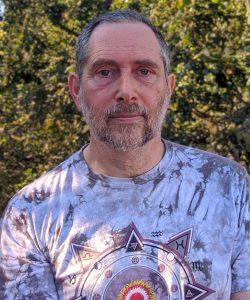
Lincoln Stoller has a degree in theoretical quantum physics, spent two decades as a software developer, has traveled widely, and has been a psychonaut following many disciplines and chemistries. He’s now a hypnotherapist and neurofeedback therapist living in British Columbia, Canada.
Lincoln just published Becoming Supergenius Part I: The Outer World. Get a free digital copy by subscribing to his blog from this page.
Liked this post? Subscribe to my RSS feed to get much more!

